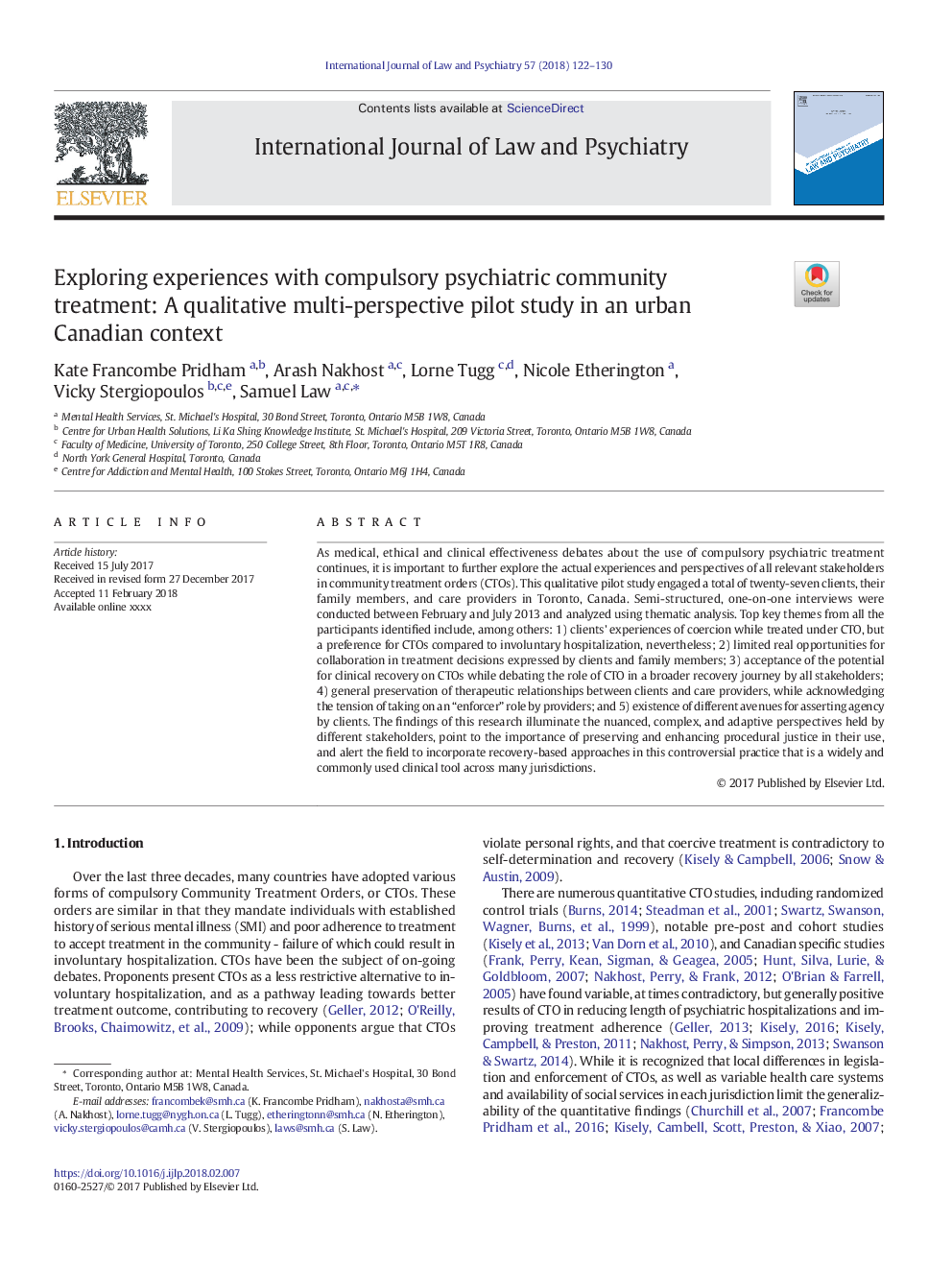ترجمه فارسی عنوان مقاله
بررسی تجربیات درمان روانپزشکی اجباری: یک مطالعه کیفی چند مرحله ای در یک کاناپه شهری کانادایی
عنوان انگلیسی
Exploring experiences with compulsory psychiatric community treatment: A qualitative multi-perspective pilot study in an urban Canadian context
| کد مقاله | سال انتشار | تعداد صفحات مقاله انگلیسی |
|---|---|---|
| 126928 | 2018 | 9 صفحه PDF |
منبع

Publisher : Elsevier - Science Direct (الزویر - ساینس دایرکت)
Journal : International Journal of Law and Psychiatry, Volume 57, MarchâApril 2018, Pages 122-130

